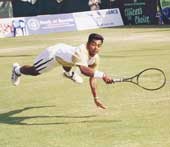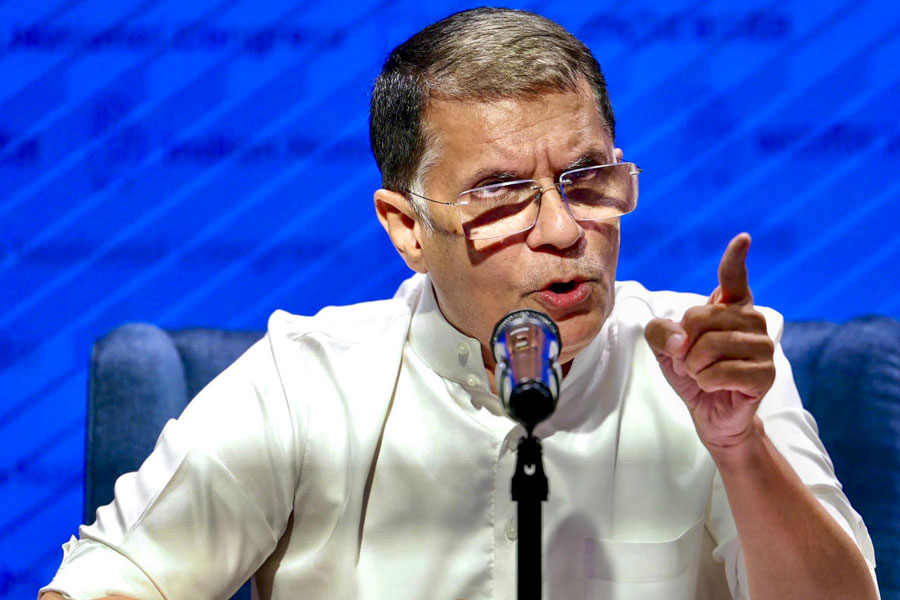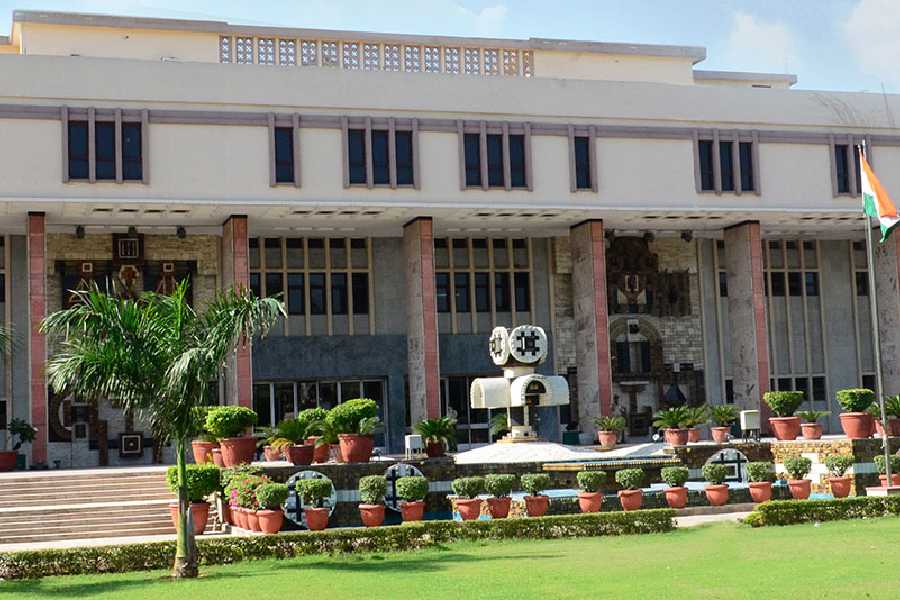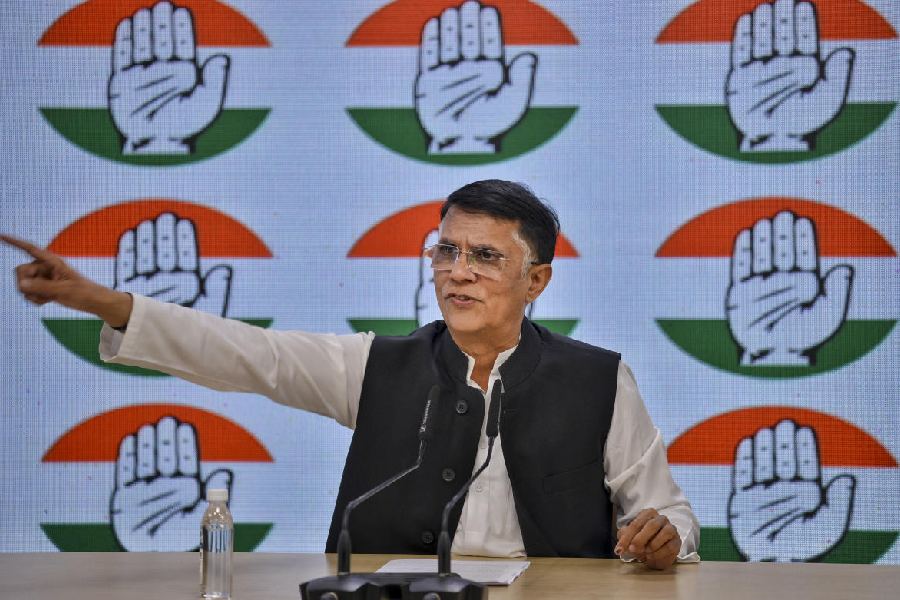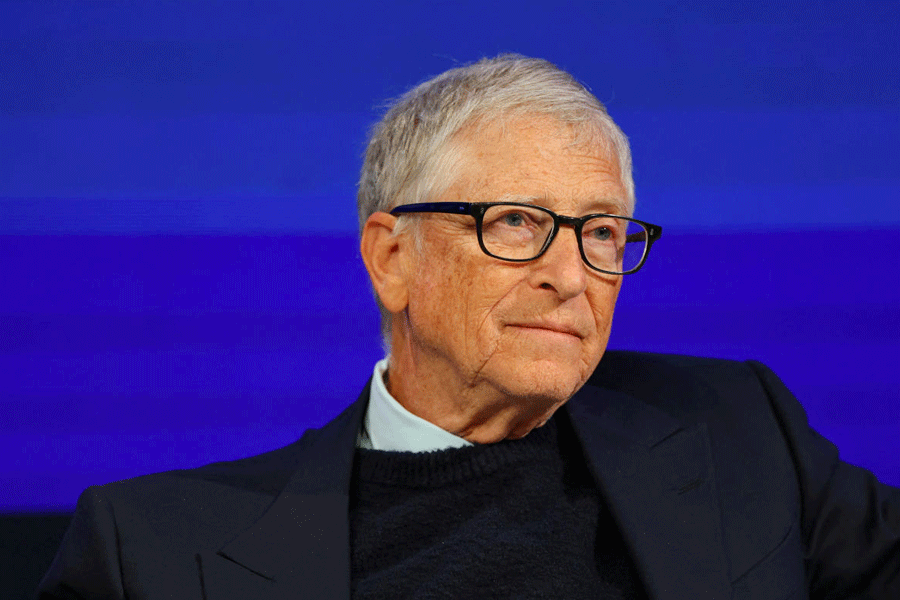 |
The Americans have pretty much given up on their months-long effort to get General Pervez Musharraf to actively subdue the taliban. But they are in no mood to give up their attempts to get Pakistanis to fight the extremist militia that was once the government in Afghanistan. While they failed with Musharraf, they have found at least one Pakistani willing to fight their war against Mullah Omar’s resurgent fighters, who dream of eventually retaking Kandahar and Kabul. Last month, the Bush administration appointed Muhammad Muzzafar Khan as commanding officer of the Sea Control Squadron, which is regularly bombing the taliban. Khan is an American citizen and the first ethnic Pakistani as well as the first Muslim ever to take command of an operational aviation squadron in the American navy. His father was a Pakistani air force officer for over two decades, who became a commercial pilot after giving up the uniform that has been the symbol of Pakistan’s ruling class for much of its history as a nation.
The squadron Khan commands is currently on board USS John C. Stennis, deployed in the area of operations of the American 5th fleet in the northern part of the Arabian Gulf. From there, Khan flies missions over Afghanistan in what the American navy’s public affairs officers euphemistically describe as efforts “to bring stability and security to the region and help defeat the taliban who incite extremism”. It is difficult to miss the irony of what Khan has been doing for precisely a month today. He is earnestly doing what many of his father’s brother officers in Pakistani uniform are hoodwinking the Americans about, even as the rulers in his original home country until 1981 are once again taking the United States of America for a costly ride on the high stakes issue of terrorism within Pakistan and in its neighbourhood.
But the Americans appear to have little choice. This week, the US assistant secretary of state for south Asia, Richard Boucher, is in Islamabad. Contrary to speculation that he is mediating between an embattled Musharraf and the exiled opposition leader Benazir Bhutto, Boucher’s main effort will be to bring greater clarity to the Afghan conundrum. Boucher was preceded by Ronald Neumann, who was US envoy in Kabul until recently and now serves as an intellectual troubleshooter of sorts for the US on Afghanistan. In the absence of a US ambassador in Islamabad at this critical time, with a new US envoy in Kabul, William Wood, who has little experience of south or central Asia, Boucher has become the Bush administration’s point man for the complex relations between Pakistan and Afghanistan.
But Boucher will find himself woefully short when it comes to facing up to Musharraf’s wiliness, and hamstrung because Washington’s strategy for Afghanistan lacks content that is required to deal with the complexities of Afghan history and the demands of a modern-day ‘Great Game’. Already, the decent, soft-spoken career US diplomat has been reduced in recent weeks, like a Soviet-era central economic planner, to reeling off statistical details of senior taliban figures killed in order to prove that anti-terrorism efforts are bringing results in Afghanistan.
A failure of the current enterprise to revive and rebuild Afghanistan can have potentially disastrous consequences which would go beyond that country’s borders, to all over south and central Asia — even across continents as the 9/11 terrorist attacks in New York and Washington showed. But ‘failure’ is no longer a word that is unutterable while talking of Afghanistan, and at the heart of this depressing turn of events, of course, is Pakistan.
In India, scant attention has been paid to a blanket amnesty, which was approved earlier this year by Afghanistan’s parliament to “opponents who fought each other for different reasons in the last two and a half decades” as part of a national reconciliation process. The amnesty covers the communists who fought the mujahedin, but it also covers taliban leaders, including Mullah Omar, the man who personally sheltered Osama bin Laden in Afghanistan through 9/11.
Clearly, the parliament’s resolve has eliminated the possibility that any kind of war crimes tribunal would be set up in Afghanistan: that, in turn, frees up people who have been lying low to once again become players on the national scene. Indeed, that is precisely what happened in recent months, redrawing the chessboard of Afghan politics, much to the discomfiture of the US, which is used to seeing everything in black or white with no shades of grey.
The amnesty set the stage for Gulbuddin Hekmatyar, Pakistan’s one-time protégée in the fight against Soviet-controlled Afghanistan, to not only assert himself but also display his hitherto underestimated network and strength within Pakistan. It also set in motion a chain of events which led to the creation of a ‘United Front’ that is systematically nibbling at President Hamid Karzai’s political and moral authority. The United Front is a broad coalition of leaders who once made up the Northern Alliance, but it also includes Hekmatyar and former members of the politburo of the Afghan Communist Party. India must court this front: they may be the future of Afghanistan in the long run and it includes people who are on the same page where India’s interests are.
Meanwhile, curiously, Hekmatyar’s Shahaadat newspaper, which had been banned by Pakistani authorities, is once again being sold openly in Peshawar. Another pro-Hekmatyar newspaper, Tanweer, has recently seen its popularity and influence soar within Pakistan. It is a case of history repeating itself. For a long time, Musharraf insisted that he was doing nothing to export terrorism to India even as the Pakistani state was financing and equipping camps for training terrorists to be sent across the border into India. Now he is similarly stoking the fires of dissent within Afghanistan and fomenting taliban violence on the other side of the Durand Line after a gap when he had to appear to be behaving in the aftermath of September 11, 2001.
In the process, what Musharraf is trying to do is wean the taliban away from al Qaida and recreate it in Rawalpindi’s image to serve as an instrument in preserving Pakistan’s strategic depth in Afghanistan. America’s weakness in Afghanistan — compounded by the fallout from its difficulties in Iraq — has emboldened Musharraf to take yet another gamble. He reckons that even if he is moderately successful in this gamble to tighten his country’s grip on Kabul, he can offset some of the domestic troubles he is facing as a result of a revolt in the judiciary and an emerging disenchantment among his people with military rule and the alliance with Washington.
As of now, it is Washington that is terrified at the prospect of a regime change in Islamabad. An unpredictable player in the Afghan game may yet turn out to be Iran. Tehran’s carefully calibrated recent moves, such as expelling Sunni refugees and forging new alliances within Afghanistan may eventually have the effect of making the US sue for accommodation with Iran in an effort to prevent further deterioration of the situation on the ground in Afghanistan. At the same time, Russia is cautiously taking stock of its room for manoeuvre. All of which may force India to go beyond its current policy of not getting involved in Afghanistan apart from giving aid for development.

